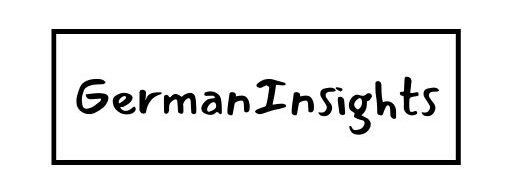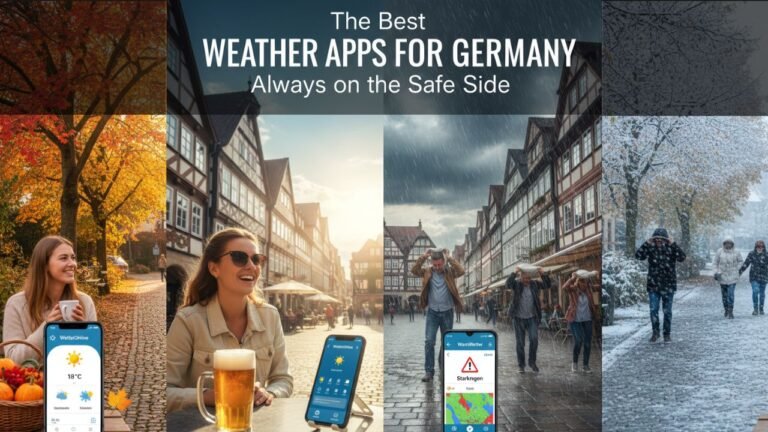Germany’s New Visa Rules for 2026: Guide to the EU Blue Card, Opportunity Card, and More

Facing a critical shortage of skilled labor, Germany has fundamentally transformed its immigration laws to attract global talent. The landmark Skilled Immigration Act has ushered in a new era, shifting from a stance of control to one of active recruitment. With modernized, streamlined, and digitized processes, Germany is positioning itself to win the “competition for the best minds”.
This guide breaks down the most important visa pathways available in 2026, helping you find the best route for your professional journey to Germany.
The EU Blue Card: The Premier Path for University Graduates
The EU Blue Card is Germany’s top-tier residence permit for highly qualified professionals from non-EU countries with a university degree or equivalent qualification.
Eligibility Requirements
- Recognized University Degree: Your degree and university must be recognized in Germany, verifiable through the anabin database. If not, a “Statement of Comparability” from the ZAB is required.
- Qualified Job Offer: You need a concrete job offer in Germany for at least six months that matches your qualifications.
- Minimum Salary: A crucial change is the lowering of salary thresholds. For 2025, the thresholds were:
- Standard Occupations: A gross annual salary of at least €48,300.
- Shortage Occupations & Special Categories: A lower threshold of €43,759.80 applies to professions in high demand.
Expanded Opportunities
The new rules significantly broaden eligibility for the lower salary threshold:
- Shortage Occupations: The list now includes not just STEM fields but also managers in various sectors, veterinarians, dentists, pharmacists, and teachers.
- Recent Graduates: If you graduated within the last three years, you can qualify for the lower salary threshold regardless of your profession.
- IT Specialists Without a Degree: In a major update, IT professionals with at least three years of relevant experience can qualify for the Blue Card and the lower salary threshold, even without a formal degree.
Benefits
The EU Blue Card offers the fastest route to permanent residence (Niederlassungserlaubnis). You can apply after just 27 months with basic German (A1) or in only 21 months with B1 level German proficiency. It also provides simplified family reunification, allowing your spouse to live and work in Germany without restrictions.
The Opportunity Card (Chancenkarte): Your Points-Based Invitation
Introduced in mid-2024, the Opportunity Card is a revolutionary one-year residence permit that allows you to come to Germany to look for a job—no pre-existing contract is required.
How to Qualify
There are two ways to get the Opportunity Card:
- Direct Path: If your foreign qualification is already fully recognized in Germany, you are exempt from the points system.
- Points-Based Path: If you don’t qualify directly, you must meet basic prerequisites and score a minimum of six points.
Basic Prerequisites (Points-Based Path)
- Qualification: A university degree or a vocational qualification of at least two years.
- Language Skills: Basic German (A1) OR independent English (B2).
- Financial Security: Proof of sufficient funds, typically via a blocked account (Sperrkonto). For 2025, this was €13,092 for the year.
The Points System at a Glance
Here’s how you can earn points:
- 4 Points: For partial recognition of your foreign qualification.
- 3 Points: For five years of relevant professional experience OR B2 level German skills.
- 2 Points: For two years of recent professional experience, B1 level German skills, OR being 35 years old or younger.
- 1 Point: For A2 level German, C1 level English, being between 35-40 years old, having a qualification in a shortage occupation, a previous stay in Germany, or applying with a spouse.
While searching for a qualified job, you are allowed to work part-time up to 20 hours per week.
Other Key Visa Pathways
Germany’s strategy is comprehensive, with several other visas tailored to specific profiles.
- Visa for Qualified Professionals (Vocational): Designed for skilled workers with recognized non-academic vocational training of at least two years. This is crucial for skilled trades and technical fields.
- Visa for Experienced Professionals: A pragmatic option for those with a foreign degree and at least two years of professional experience, but whose qualification isn’t formally recognized in Germany. A minimum salary offer is required (€43,470 as of 2025).
- Visa for Researchers: For scientists and academics who have a “hosting agreement” with a recognized German research institution.
The Application Process: Digital and In-Person
Germany is digitizing its visa process, but it remains a meticulous, hybrid procedure.
- Qualification Recognition (Start Early!): Before applying, you must have your qualifications checked. For academic degrees, use the anabin database; for vocational training, use the “Anerkennung in Deutschland” portal. This can take several months, so start at least 6-9 months in advance.
- Online Application: The process begins on the central Consular Services Portal, where you can fill out the form and upload digital copies of your documents.
- In-Person Appointment: Despite the online submission, you must still book and attend an in-person appointment at the German embassy or consulate to submit original documents, provide biometric data, and pay the fee.
If you’re looking for more blog like Best Car Sharing Apps in Germany and 10 German Traffic Rules You Must Know subscribe to join us.






